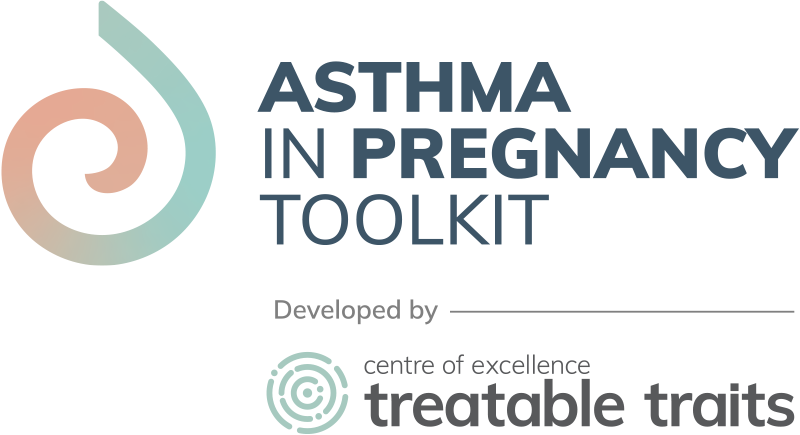
Breastfeeding optimises general health across the lifespan, and particularly the respiratory health of infants and young children. The mechanisms are not completely understood but are believed to be due to a combination of factors including effects on immunity, the gut microbiota, epigenetics, metabolism and lung function.
For example, infant exposure to immunological components of breastmilk appears to provide some protection against respiratory tract infections, which are a major cause of infant wheeze (Oddy et al. 2004). The most recent report from the American Academy of Paediatrics (AAP) states that “The evidence now suggests that any duration of breastfeeding beyond 3 to 4 months is protective against wheezing in the first 2 years of life. This effect is irrespective of duration of exclusivity.”
Breastfeeding has also been shown to influence the development of the gut microbiota (Azad et al. 2016), which has been linked with reducing the risk of developing asthma (Arrieta et al. 2015). This reduced risk may be attributable to infant exposure to protective maternal skin microbes through direct contact when breastfeeding. The physical exercise associated with suckling at the breast has also been suggested to promote lung development, increase lung function and improve airflow (Ogbuanu et al. 2009, Waidyatillake et al. 2013). One study reported that breastfeeding for more than 4 months was associated with increased lung function (increase forced vital capacity and forced mid-expiratory flow) in children of mothers with asthma (Dogaru et al. 2012).
The influence of a family history of asthma on breastfeeding
There is evidence to suggest that a family history of asthma, particularly maternal asthma, influences the relationship between breastfeeding and infant respiratory health outcomes. A Canadian study showed that infant wheeze at 6 months of age was reduced by 62% in infants who were exclusively breastfed, and by 37% in infants who were partially breastfed (and received complementary foods), compared with infants who received no breastmilk (Azad et al. 2017). There was no reduction in wheeze when breastfeeding was supplemented with formula, compared with infants who did not receive any breastmilk. Notably, the beneficial effects of breastfeeding on wheeze were only found in infants whose mothers had asthma.
In an Australian study of infants whose mothers have asthma, breastfeeding for at least the first six months of life*:
- Halved the risk of infant wheeze at six months of age
- Reduced the risk of a wheeze-related ED presentation and hospital admission by 70% within the first six months of life
- Halved the risk of bronchiolitis in the first year of life.
*Compared with infants who received no breastmilk and whose mothers also have asthma (Harvey et al. 2020).
It appears that the relationship between breastfeeding and wheeze in infants who are at high risk due to family history of atopy/asthma is dose-dependent. Infants who have been breastfed for longer than three months have half the risk of wheeze at six months of age, compared with infants who have been breastfed for less than three months (Harvey et al. 2021). Greater reductions in healthcare use for infant wheeze have also been observed with breastfeeding for 6-7 months, but even breastfeeding for at least 1 month was associated with reduced healthcare use for wheeze in infants whose mothers have asthma (Harvey et al. 2020). Notably, any breastfeeding (compared to none) has been associated with a 55% and 32% reduced odds of wheeze at 6 and 12 months of age in high risk infants (Harvey et al. 2021).
Breastfeeding and risk of childhood asthma
There is evidence to support that longer, versus shorter, breastfeeding (either partial or exclusive) is protective against childhood asthma (Greer et al. 2019). The most recent evidence showed that breastfeeding for a longer duration (whether exclusive or not) was associated with a reduced risk of asthma compared to a shorter duration (Xue et al. 2021). Children aged up to 12 years who were exclusively breastfed for a longer duration had a 19% lower risk of asthma, compared to those who were exclusively breastfed for a shorter duration. Likewise, longer vs shorter duration of any breastfeeding was associated with a 16% lower risk of asthma, whilst ‘ever’ versus ‘never’ breastfed was not significant (although removal of low quality articles made this association significant). However, it should be noted that although a significant association between more versus less breastfeeding was observed for children aged 0-2 and 3-6 years, there was no significant association for the age group 7-12 years (Xue et al. 2021). This is in line with an earlier study reporting that more vs less breastfeeding was associated with a reduced odds of ‘asthma ever’ in children aged 0-2, 3-6 and ≥7 years of age, but with the effect size/risk reduction decreasing with increasing age of the child (Dogaru et al. 2014). Similarly, Lodge et al. found no association between breastfeeding duration and the incidence of asthma in school-aged children (5–18 years), regardless of whether they were at increased risk due to a family history of allergic disease (Lodge et al. 2015). Therefore, it is unclear whether breastfeeding has lasting beneficial effects for respiratory health in later childhood.
There is research to suggest that the way in which an infant is fed may influence their risk of developing asthma. Compared to infants who received breastmilk solely through breastfeeding (i.e. direct suckling at the breast), infants who were fed by direct breastfeeding and expressed breastmilk in the first 3 months of life had a 43% increase in the odds of asthma at age 3 years. The odds increased to 56% for infants who were breastfed and received formula, and to 79% for infants who received formula only (Klopp et al. 2017). This finding was after adjustment for several factors, including maternal asthma and total breastfeeding duration. This research suggests that exclusive direct breastfeeding provides the most benefit, however, any exposure to breastmilk may still offer benefits compared to formula feeding.
